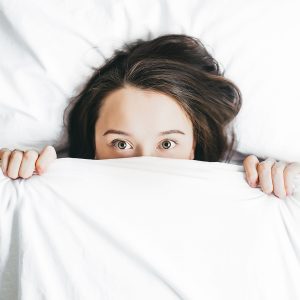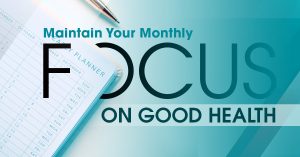 If there’s one thing that’s spreading faster than the coronavirus, it’s panic. Fortunately, helpful information travels just as quickly. Each day we’re learning more about the virus and what preventative measures we can take. Here’s what you need to know to stay healthy and safe.
If there’s one thing that’s spreading faster than the coronavirus, it’s panic. Fortunately, helpful information travels just as quickly. Each day we’re learning more about the virus and what preventative measures we can take. Here’s what you need to know to stay healthy and safe.
What is coronavirus exactly?
“Coronavirus” is a class of viruses that cause respiratory infections in humans. We’ve seen coronaviruses make headlines in the past with SARS in 2002 and MERS in 2012. The outbreak everyone is talking about is a disease called COVID-19, which resulted from a novel coronavirus in Wuhan, China, and has been spreading around the globe.
COVID-19 is spread by respiratory droplets when someone infected coughs or sneezes. Symptoms show up within 2-14 days after exposure and include fever, dry cough, fatigue, shortness of breath, and in rare cases pneumonia. While mass hysteria gives the impression that COVID-19 is apocalyptic, in most cases so far, those infected only developed mild symptoms. Those at higher risk of developing more serious symptoms include:
- Older adults
- Those with heart disease, lung disease, diabetes, or other chronic medical conditions
- Those with compromised immune systems
COVID-19 is not yet fully understood and is highly contagious. So, while most cases have not been life threatening, you should take all precautionary measures to prevent catching or spreading the disease.
How to protect yourself against COVID-19
Hygiene: Since COVID-19 is spread person-to-person through respiratory droplets, you should routinely wash your hands with soap and water for at least 20 seconds.
- Wash your hands after coughing or sneezing, being in a public space or large crowd, or touching common elements like railings, elevator buttons, and public touch screens.
- Wash your hands before touching your face or eating.
Hand sanitizer should only be used when soap and water are not available, as it’s less effective than hand-washing at eliminating germs. You should also routinely clean and disinfect frequently touched surfaces in your home, such as doorknobs, countertops, mice and keyboards, cell phones, and faucets.
Stress: Headlines are making heads spin. You want to be informed not overwhelmed; it’s a time to be prudent not panicked. Being overly stressed compromises your immune system, so do what you need to do to stay content and in control.
- Get adequate sleep (7-9 hours per day) and routinely exercise
- Take regular breaks from your devices and the 24-hour news cycle
- Catch negative or paranoid thought patterns before they affect your mood
Nutrition: Your immune system is your last line of defense against COVID-19. Be sure to eat a nutritious diet rich in vitamins that strengthen your immune system, including:
- Vitamin D: Salmon, cod liver oil, spinach, beans, kale, egg yolks, mushrooms, and dairy.
- Vitamin A: Fish, eggs, liver, sweet potato, carrots, kale, squash, mango, and cantaloupe.
- Zinc: Meat, shellfish, nuts, seeds, legumes, oats, and dairy.
- Selenium: Brazil nuts, meat, eggs, brown rice, oats, beans, and mushrooms.
You may choose to supplement these vitamins if you aren’t getting enough from your diet alone. Vitamin-D deficiency is especially prevalent in the wintertime when you get less sun.
Exposure: The best way to protect yourself from COVID-19 is to avoid scenarios that put you in harm’s way. You may not be able to act on all these suggestions; however, you should consider each, especially if there are cases of COVID-19 in your area.
- Replace hugs or handshaking with a non-contact greeting.
- Host business meetings in large, ventilated office spaces, and encourage video-conference meetings.
- Avoid airports and cruise ships and postpone nonessential travel plans.
- Avoid crowded events like festivals or concerts.
What to do if you get sick
The Centers for Disease Control and Prevention (CDC) has an excellent guide on what to do if you or someone you know is sick with what could be COVID-19. It details proper procedures to prevent transmission, as well as how and when to seek medical care. The most important takeaway is to immediately isolate yourself at home away from your family and pets if you suspect you may have COVID-19.
Nobody knows for certain how long COVID-19 will last. The most you can do is continue living your life while taking the necessary precautions to stay safe.
The statements made in this article have not been evaluated by Health Canada or the U.S. Food and Drug Administration. None of the information presented is intended to diagnose, treat, cure or prevent disease. Always seek the advice of your physician or other qualified health provider with any questions you may have regarding a medical condition.



4 Comments